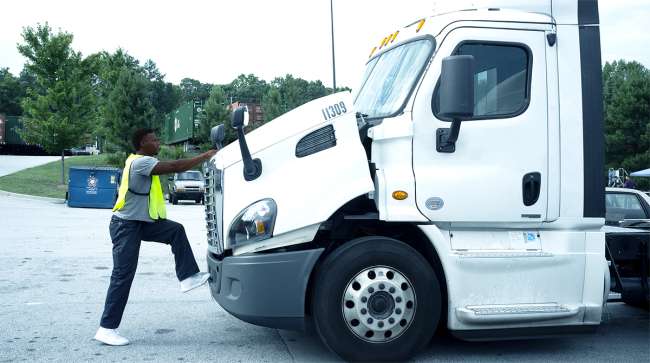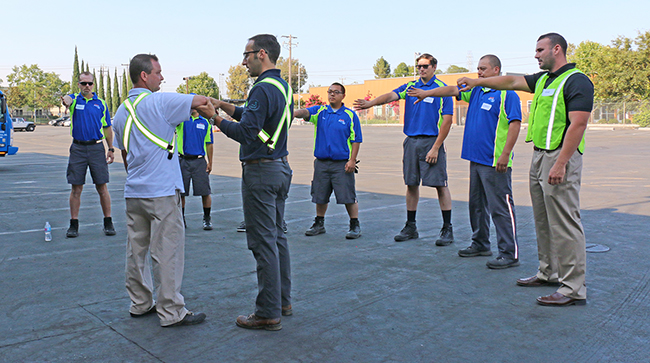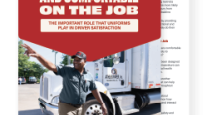Staff Reporter
Tech Company Worklete Uses Software to Build Good Trucker Habits

A San Francisco technology company is using software that offers a service to prevent trucking-related workplace injuries, by building habits for truckers and others in the freight industry.
The mobile- and tablet-friendly service is provided by Worklete, whose officials said they have seen some clients reduce injuries to the muscles and bones by 62%, with a corresponding decrease of 80% in personnel costs.
“We’re focused on human movement,” Worklete CEO Ben Kanner said. “Most don’t know how to use [movement] ... We want movement to be taught.”
The way it works is to message instructions on how to move and lift, combine it with behavioral science and present the information on a regular basis, in what Kanner calls “micro-learning modules” presented in five-minute bites. The quick lessons are taught over time, which is important, Kanner says, because it takes at least 30 days to change a habit. (Kanner cites NASA research in habitual behavior to back that claim.)
We’re focused on human movement. We want movement to be taught.
Worklete CEO Ben Kanner
Kanner told Transport Topics that the freight-moving industry is No. 1 for musculoskeletal injuries, citing federal statistics, including the U.S. Bureau of Labor Statistics’ 2015 report on nonfatal occupational injuries and illnesses involving days away from work.
The BLS report found 59,010 incidents involving freight-related workers, including stockers and movers, in 2015. The median time away from work was nine days.
The same report found 49,260 incidents in 2015 involving workers associated with heavy trucks and tractor-trailers. Their median time away from work was 22 days after an injury.
Worklete was founded three years ago based on the concept that many of the accidents and injuries are avoidable with training on how to lift and even how to get inside the truck, said Kanner, whose father was a safety consultant for three decades. So Kanner picked up where his father had left, after consulting with firefighting departments for 30 years.

Worklete staff instruct employees on how to use their arms and elbows on the job properly. (Worklete)
But his father was limited by the technology of the time.
“It took him over 30 years to train thousands of firefighters,” Kanner said.
Kanner now uses technology to teach movement and safety ideas to thousands of people, every day. It’s a demand that never seems to go away, according to Worklete officials.
“There is a huge knowledge gap on how to get these things done,” said John Post, Worklete’s chief product officer.
But it isn’t just about heavy lifting. Worklete also advises drivers on how to avoid stiffness after long drives.

Post
“The human bodies all work the same,” Post said. “[Freight workers] have to be especially careful in how they move. They are at a higher risk.”
Worklete, with 35 employees, counts among its clients Penske Logistics and Hub Group.
Tim Smith, Hub Group’s senior vice president of safety, told TT that the Oak Brook, Ill.-based company has seen a significant reduction.
“Every year, we have seen a dramatic reduction in our lost-time injuries,” Smith said.
The effectiveness is the fresh and innovative way the information is delivered to the workers, Smith said. The training and the program transcend the workplace, Smith added.
Hub Group is a supply chain logistics company with 3,900 trucks, 1,200 employees and 4,400 drivers. Hub ranks No. 8 on the Transport Topics list of the Top 100 for-hire trucking companies in North America and No. 33 on TT’s list of the Top 50 logistics companies.





